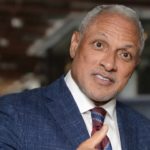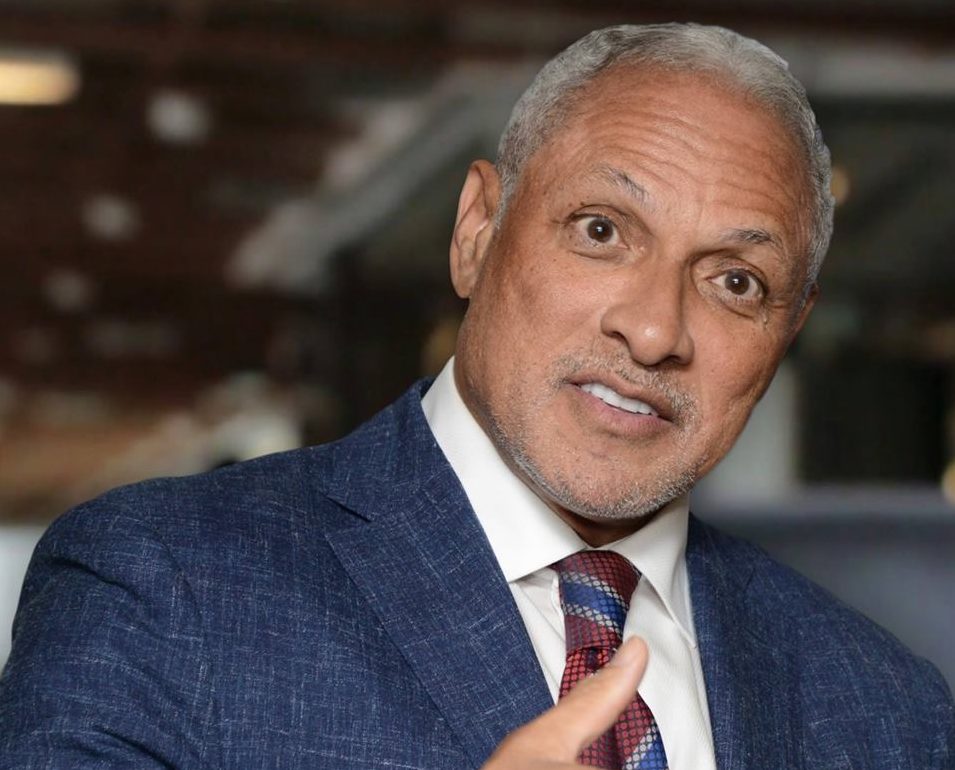[ad_1]

As we all know by now, this year’s midterm elections have fulfilled the promise of being among the most turbulent. The hyper-partisanship, xenophobic rhetoric, race baiting, voter suppression – to name just a few elements—have exposed even more severe fissures in a deeply divided nation since Donald Trump captured the White House two years ago.The stakes are high for the next Election Day, on Nov. 6, as the Democrats seek to take Congress as a means of disrupting Trump’s agenda. To gain control, the Dems need to flip 23 House seats and assuming the party can hold on to its current position, win 2 U.S. Senate seats.
Given this scenario, the most consequential race may wind up being the special election in Mississippi, to replace Republican Thad Cochran, the former U.S. senator who resigned last March for health reasons. It may become the most historic as well: Alphonso Michael Espy, known as “Mike,” seeks to win that seat to become the first African American U.S. senator from the Magnolia State since Reconstruction. The 64-year-old politician has already twice achieved political milestones: In 1986, he was the first black Congressman elected to represent a district in Mississippi, after Jim Crow; and in 1993, he joined former president Bill Clinton’s cabinet as the first African American Agriculture Secretary. (Espy resigned from the post in 1994, following questions over his use of government perks and acceptance of gifts, and was indicted in 1997, for receiving improper gifts. In 1998, he was, however, acquitted of all charges.)
To emerge victorious, he has to beat the frontrunner, Cindy Hyde-Smith, the Trump-backed GOP incumbent who was appointed to the seat by Gov. Dewey Phillip Bryant. Other candidates in the race are attorney and talk show host Chris McDaniel. a Republican with neo-Confederate ties, and Tobey Bartee, an African American nonpartisan candidate.
How this race differs from the other congressional contests is that one of the candidates must receive more than 50% of all votes cast to win the Nov. 6 special election. If not, the top two vote getters – regardless of party affiliation – will have to face each other in the Nov. 27 runoff. Based on the polls, fundraising and electorate support, it appears likely in that case that the election would be between Espy and Hyde-Smith. In a recent, NBC News/Marist poll, Espy receives support from 29% of likely voters, Hyde-Smith gets 38%percent, McDaniel 15% and Bartee 2%. However, 15% of the electorate say they’re undecided.
BLACK ENTERPRISE Editor-In-Chief Derek T. Dingle recently gained an exclusive interview with Espy while he was on the hustings, discussing the current state of the race and his proposed formulas for victory. Here are edited excerpts from that interview:
This special election has garnered a great deal of national and international attention. Share with us your perspective on the significance of the race.
Well, it’s a significant race because everyone’s looking at it as an opportunity to pick up a seat for the Democratic Party. This race has been judged by the Democratic Senate Campaign Committee as one of the top ten pick-up races in the nation. And they’re looking at it because everyone looks at the Doug Jones race in {Alabama last year] as sort of a model.
On paper. it seems our race is more critical than Alabama because we’ve got a larger black population — Mississippi’s almost one-fourth or one-fifth black in pure population — but when it comes to voting age, we’ve got 13,000 more black registered voters than in Alabama. So that was before we started [our registration efforts].. We’ve done a pretty good job over the summer in registering black voters. So they did it in Alabama, and we believe that it is possible to do it in Mississippi.
We’ve witnessed voter suppression in Georgia this election cycle.. How do you ensure such activity does not undermine the black vote in Mississippi?
There’s some voter suppression here in Mississippi. There always has been, and we have to be knowledgeable that it exists right now. It’s not to the extent as we see in Georgia, but still there’s an attempt to suppress the vote. It comes in two ways. One is purging. So our state officials here in Mississippi are sending out voting notices and letters to those who have not voted in the last two election cycles. If they don’t come and re-register they’ll be purged. Now that doesn’t mean that they can’t vote.
So when they go to the voting polls on November 6th, there’s a high likelihood that if they received the letter and did not go and re-register, their name won’t show up. But they can file an affidavit ballot. Sometimes that’s very, very discouraging to a voter, and he or she might just give up. That may be the intended outcome of those who are doing this. So we are actively trying to encourage those who got the letters – some of them haven’t voted since Barack Obama’s re-election and they may be off the rolls. We are trying to alert them, give them the proper information and tell them that if they got the letter, they got to re-register. If not, don’t be disenchanted or disillusioned. Vote affidavit and that vote will be counted.
What is the other voter suppression tactic and how is your campaign addressing it?
The other is age-old voter identification. A lot of people in Mississippi, particularly the elderly, don’t have driver’s licenses so they’ve never had to show ID when they went to the polls before. So a lot of them might be discouraged that they don’t have that form of ID. We’re letting them know that even though they don’t have a driver’s license, you can register with a utility bill or any kind of proper identification that shows your picture and address. A lot of those will be taken. I’d rather access to the ballot would be free and unfettered without all these hassles and hindrances. That’s our hope. But right now we have to deal with it as it is like [Democratic gubernatorial candidate] Stacey Abrams is doing in Georgia.
How has your campaign engaged in outreach efforts to gain broad-based support?
Now, you cannot win with black votes alone. But someone like me with a history of being able to encourage white voters to vote for me, a lot of people see that as predicate for a victory. I was the first African American to ever win a congressional seat in Mississippi, in 1986; and I won with 85% of the black vote and 11% of the white vote. That district was not majority black back then. Then in 1992, I won with 95% of the black vote and 40% of the white vote. So the fact that I’m well-known, got 95% of the vote, served and filled the office before, I’m the most experienced person in the race irrespective of party, and everyone knows that I’ve got a history of reaching across the aisle to white voters, independents, and Republicans, all suggest that this is an opportunity to win. Lastly, this is a special election where there’s two strong Republicans on the ballot. So in that scenario, if the black vote comes out in record numbers, I believe there’s an opportunity to actually win without a runoff and even if there is a runoff, there’s still the possibility of a victory if the black vote comes out. That’s the answer.
So with this being a highly-contested race, possibly going to a runoff, what has been your campaign’s focus on financing? Where have you gained funding?
Our financing is actually doing very well. In the third quarter of this cycle, we’re beating the Republican incumbent and the challenger, almost both of them put together. Now we have to report every 15 days, so October 1st to October 15th, we’ve been number one in the state of Mississippi, in raising money. We’re raising almost $40,000 per day because people know that we have the momentum, the voters are swinging in our favor. We’ve seen many, many, many whites dedicating their support to our program. I’m going to say [we have raised] $2.3 million so far, and about 87% of that have come from donors at $100 and below.
We’re really, really proud of that. We don’t have a lot of high dollar donors. There is an incumbent in the race, someone who is governor-appointed so she’s getting a lot of that Republican PAC money, that corporate money, because she’s in that seat right now. But even though she’s there, we’re out-raising her because people are following my platform of making sure our rural hospitals stay open, making sure we receive Medicaid money, making sure there’s economic opportunities for everyone, making sure there’s educational access for everyone with no student debt…and everybody’s just responding to that.
Has the incendiary, divisive rhetoric in this election cycle served as a factor in gaining support?
I just shot right above all the noise and the chaos. People are tired of the dysfunction in Washington. They’re tired of the reality show and the mean-spirited tweeting. They want somebody who can bring everyone together…and serve everyone..
[ad_2]
Source link

